
Malice Quote "Never attribute to malice..." Robert J. Hanlon 1409x929 http//ift.tt/2xIL3eL
Robert J. Hanlon of Scranton, Pennsylvania, is famous for his submission to a book compilation of various jokes related to Murphy's law: Murphy's Law Book Two : More Reasons Why Things Go Wrong! (1980) by Arthur Bloch.. Quotes [edit]. Never attribute to malice that which is adequately explained by stupidity. Murphy's Law Book Two : More Reasons Why Things Go Wrong!
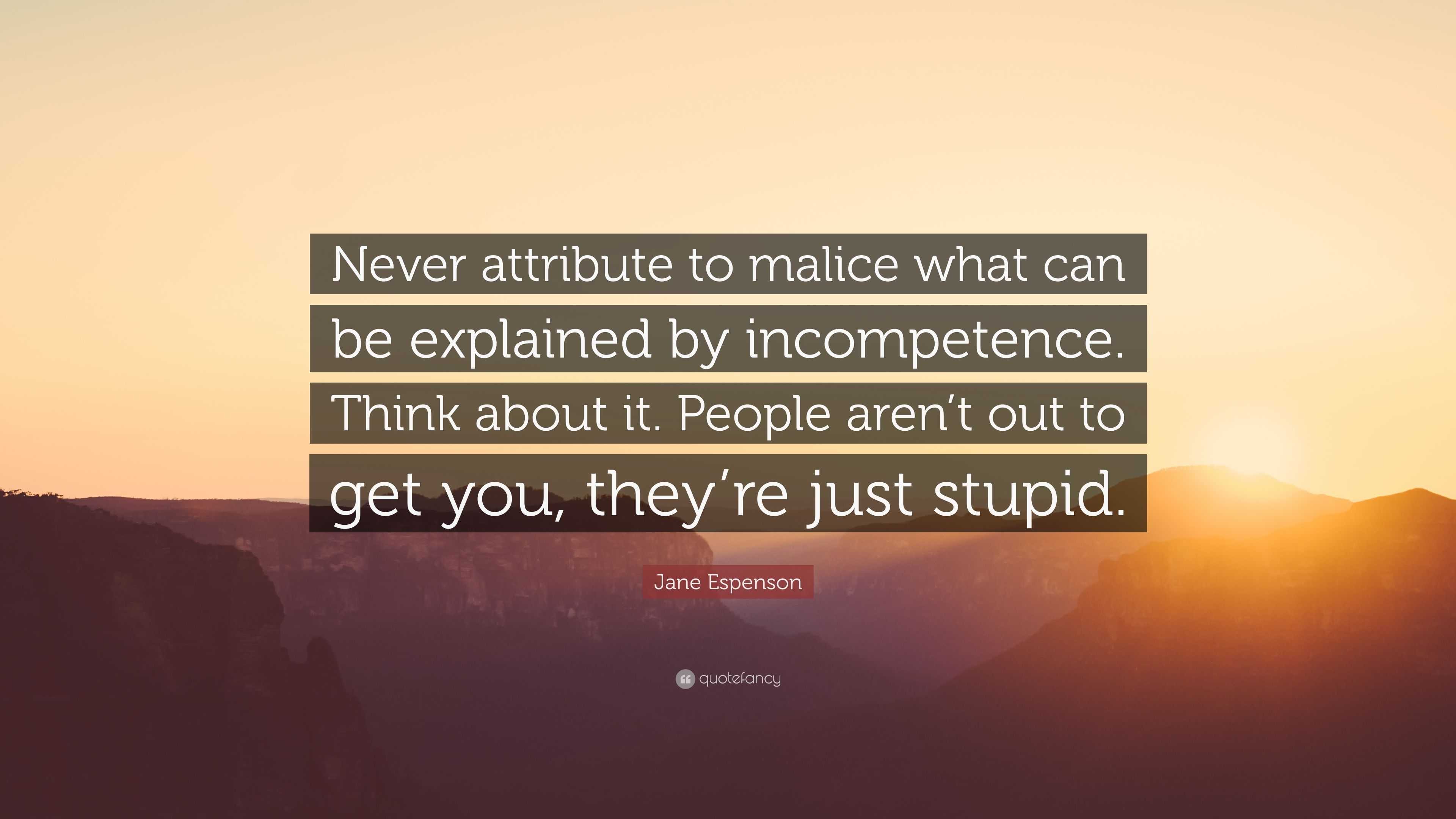
Jane Espenson Quote “Never attribute to malice what can be explained by Think
I'm not malicious, I'm not stupid, I'm not even apathetic. I'm a human being that makes honest mistakes from time to time just like everyone else does. I do my best to not mess up but sometimes my brain is tired and I can't help it. That doesn't make me stupid. I've never heard that saying used to the person it's referring to.
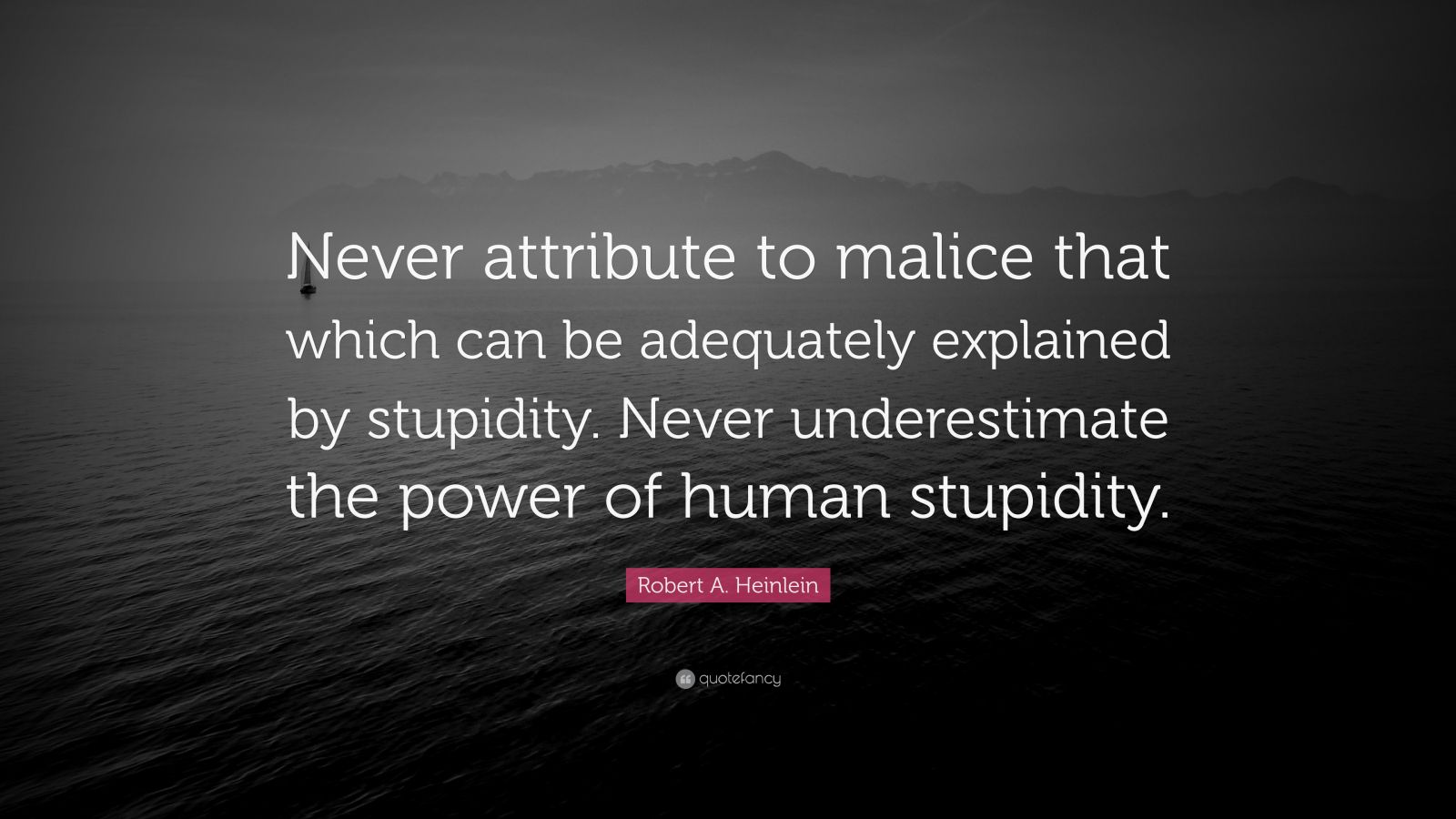
Robert A. Heinlein Quote “Never attribute to malice that which can be adequately explained by
The underlying axiom is "don't attribute to malice that which can be adequately explained by stupidity." This heuristic model has the following components:
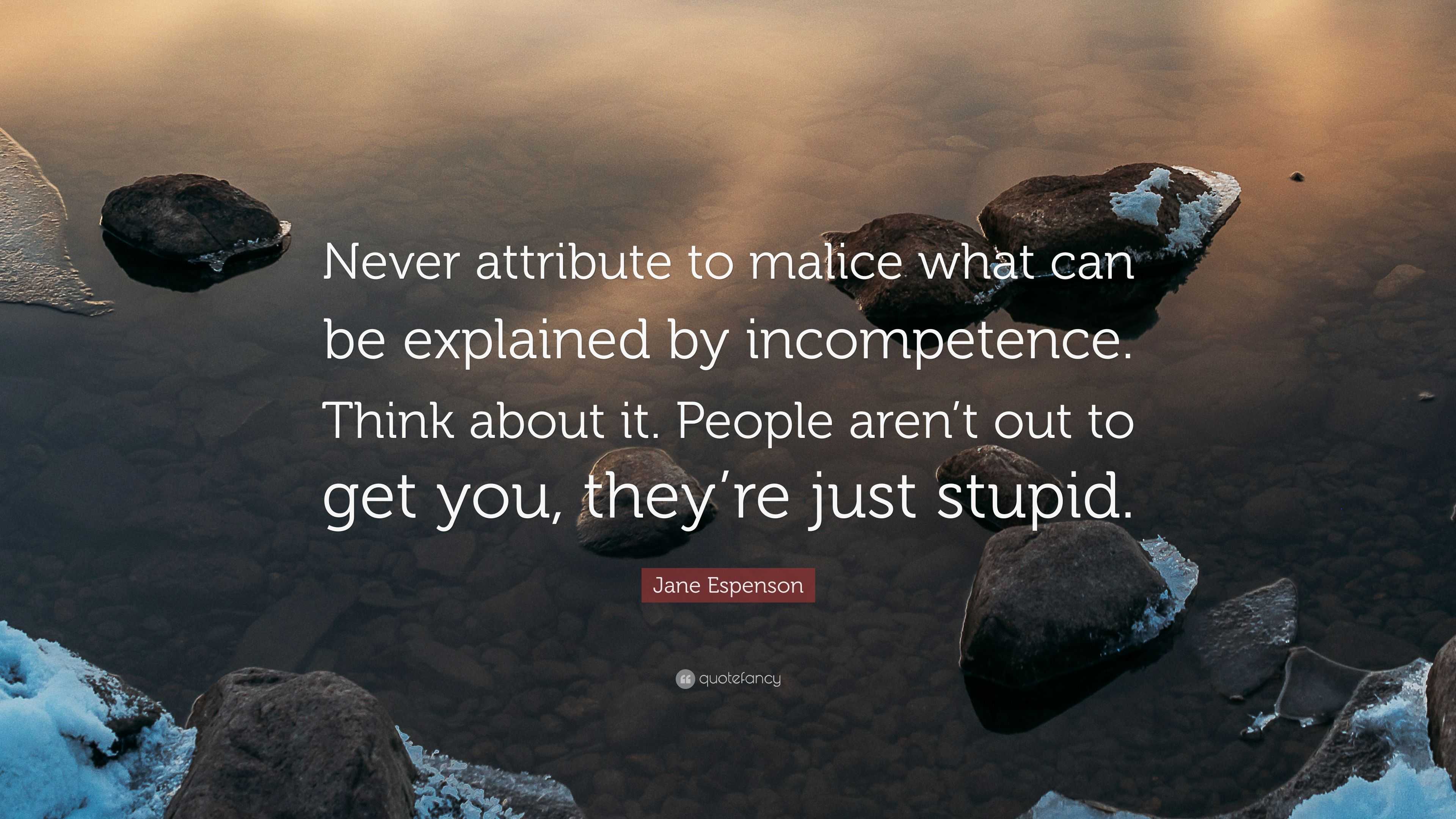
Jane Espenson Quote “Never attribute to malice what can be explained by Think
Hanlon's razor is the adage that you should "never attribute to malice that which is adequately explained by stupidity". Applied broadly, this principle suggests that when assessing people's actions, you should not assume that they acted out of a desire to cause harm, as long as there is a reasonable alternative explanation.. For example, if you don't receive a notice about an.

Never Attribute to Malice Lifehack
Hanlon's Razor: As stated by Robert. J. Hanlon, a heuristic telling us to "never attribute to malice that which is adequately explained by stupidity.". Heuristic: A mental shortcut that can help us make faster judgments in situations which are vague or complex. Heuristics can either be helpful or damaging depending on the context.
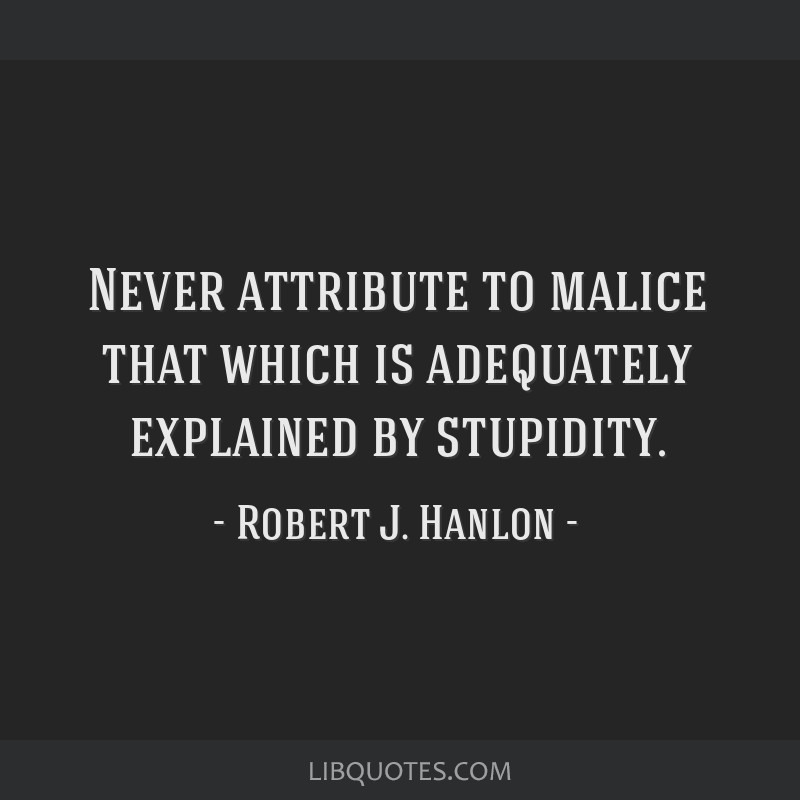
Never attribute to malice that which is adequately...
Robert J. Hanlon — 'Never attribute to malice that which is adequately explained by stupidity.'.
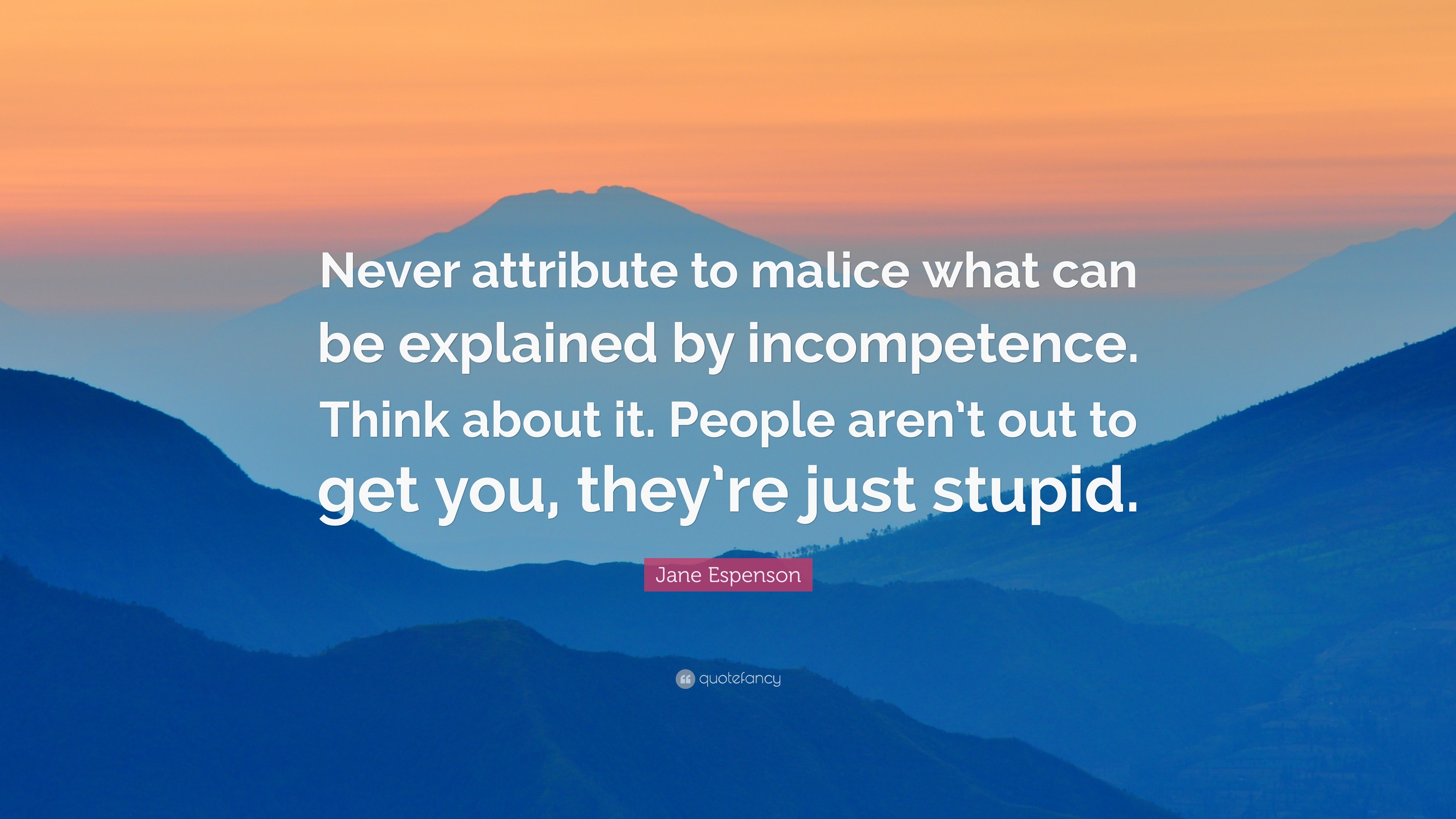
Jane Espenson Quote “Never attribute to malice what can be explained by Think
Never Attribute to Malice. Never attribute to malice that which can be adequately explained by stupidity. "It is necessary for a man to go away by himself, to sit on a rock and ask, 'Who am I, where have I been, and where am I going?". ― Carl Sandburg. Here are 10 questions that you can ask yourself every day which will help you.

NEVER ATTRIBUTE TO MALICE THAT WHICH IS EXPLAINED BY STUPIDITY Definition quotes, Great quotes
Hanlon's razor is a saying that reads: "Never attribute to malice that which is adequately explained by stupidity ." In simpler words: some bad things happen not because of people having bad intentions, but because they did not think it through properly. The quotation is attributed to Robert J. Hanlon of Scranton, Pennsylvania, US.
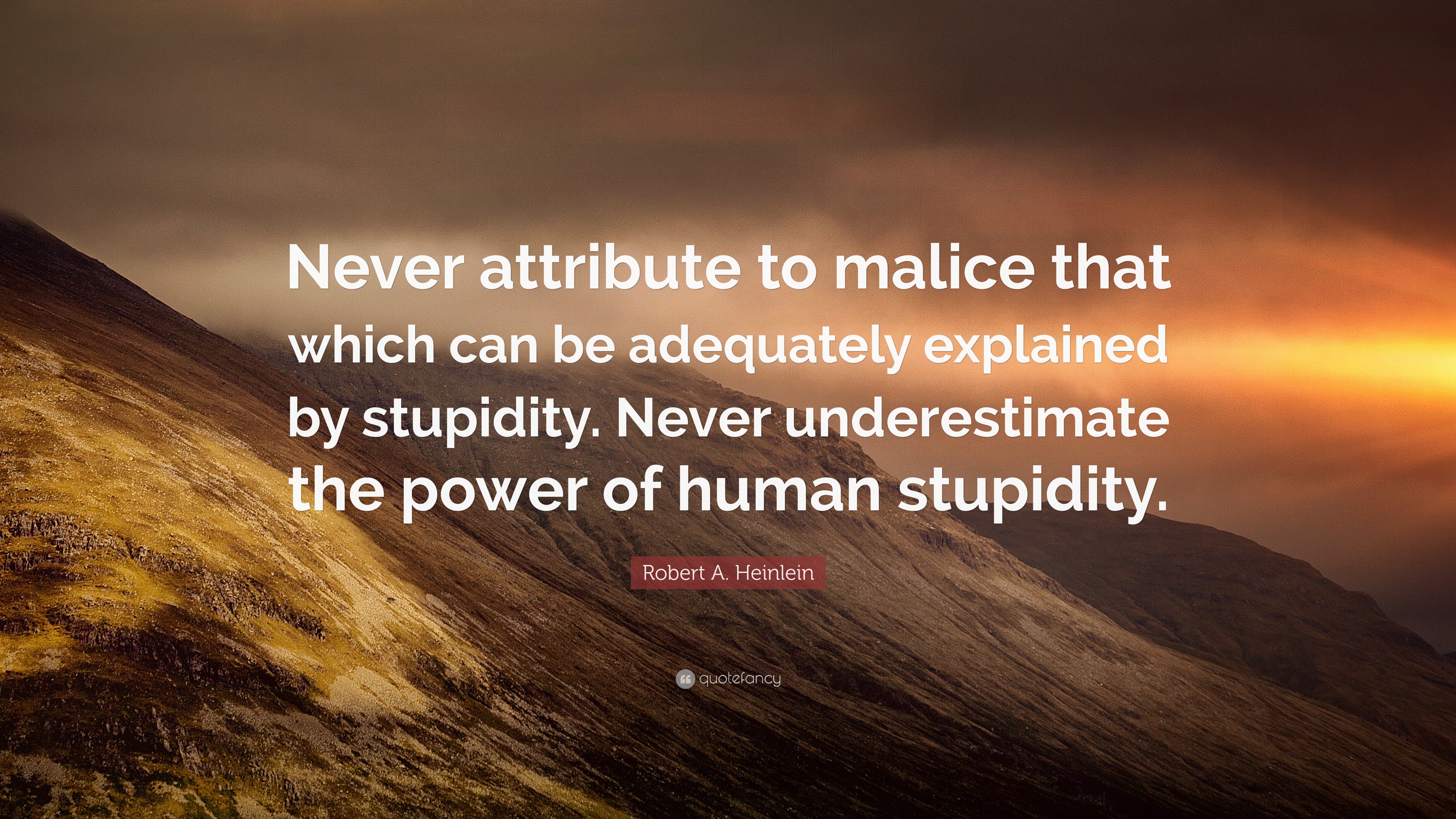
Robert A. Heinlein Quote “Never attribute to malice that which can be adequately explained by
The cover of the September 1957 issue of Venture Science Fiction, in which Sturgeon first published "90% of everything is crud.". Sturgeon's law (or Sturgeon's revelation) is an adage stating "ninety percent of everything is crap". It was coined by Theodore Sturgeon, an American science fiction author and critic, and was inspired by his observation that, while science fiction was often derided.

Never attribute to malice that which can be adequately explained by st... Quote by Robert J
Hanlon's razor is an adage or rule of thumb that states:. Never attribute to malice that which is adequately explained by stupidity. It is a philosophical razor that suggests a way of eliminating unlikely explanations for human behavior. It is probably named after Robert J. Hanlon, who submitted the statement to Murphy's Law Book Two (1980). Similar statements have been recorded since at least.

Malice Quote Malice Quotes Malice Sayings Malice Picture Quotes / Little blossom trapped
When it comes to computers and technology, I extend Hanlon's opinion a little further. Never attribute to malice that which is adequately explained by stupidity, error, or failure. Just as it's rarely malice at play, it's not always stupidity either. All people, smart and stupid, make mistakes. Failures — particularly hardware failures.

"Never attribute to malice that which is adequately explained by stupidity." Hanlon's Razor
The real value of Hanlon's Razor lies in the first part: "Never attribute to malice…". Many, many factors influence human behavior: Fear, carelessness, pain and defensiveness are just a.
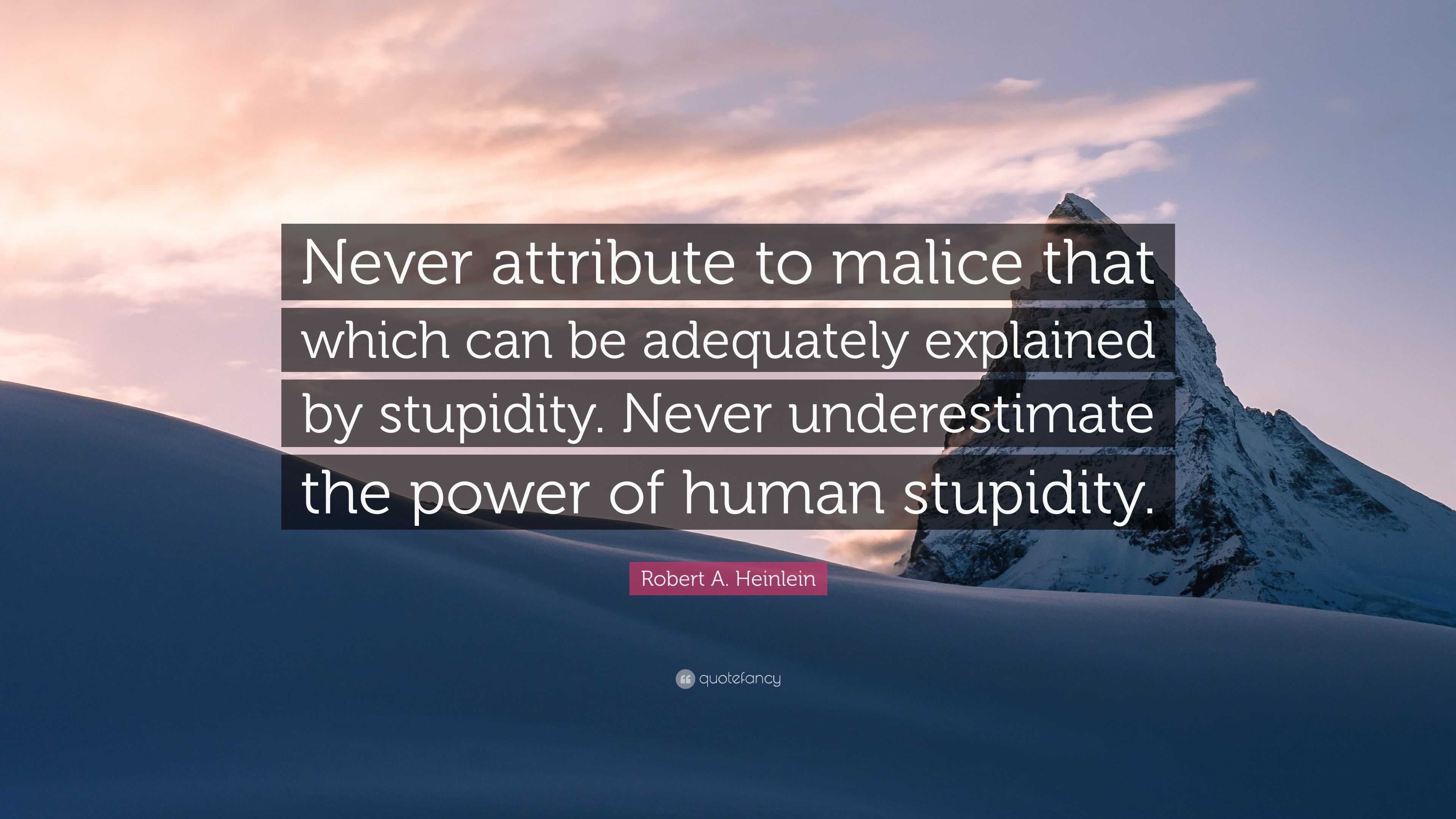
Robert A. Heinlein Quote “Never attribute to malice that which can be adequately explained by
Never ascribe to malice, that which can be explained by stupidity. Don't ascribe to malice what can be plainly explained by incompetence. This notion has been attributed to military leader Napoleon Bonaparte, to science fiction author Robert Heinlein, and to others. It is often called "Hanlon's Razor".

Nick Diamos ‘s quote about malice. Never attribute to malice what…
philosophy, a is a rule of thumb that allows one to eliminate ("shave off") unlikely explanations for a phenomenon, or avoid unnecessary actions. [1] [2] [3] Examples. Razors include: Alder's razor (also known as Newton's flaming laser sword): If something cannot be settled by experiment or observation, then it is not worthy of debate. Einstein's.
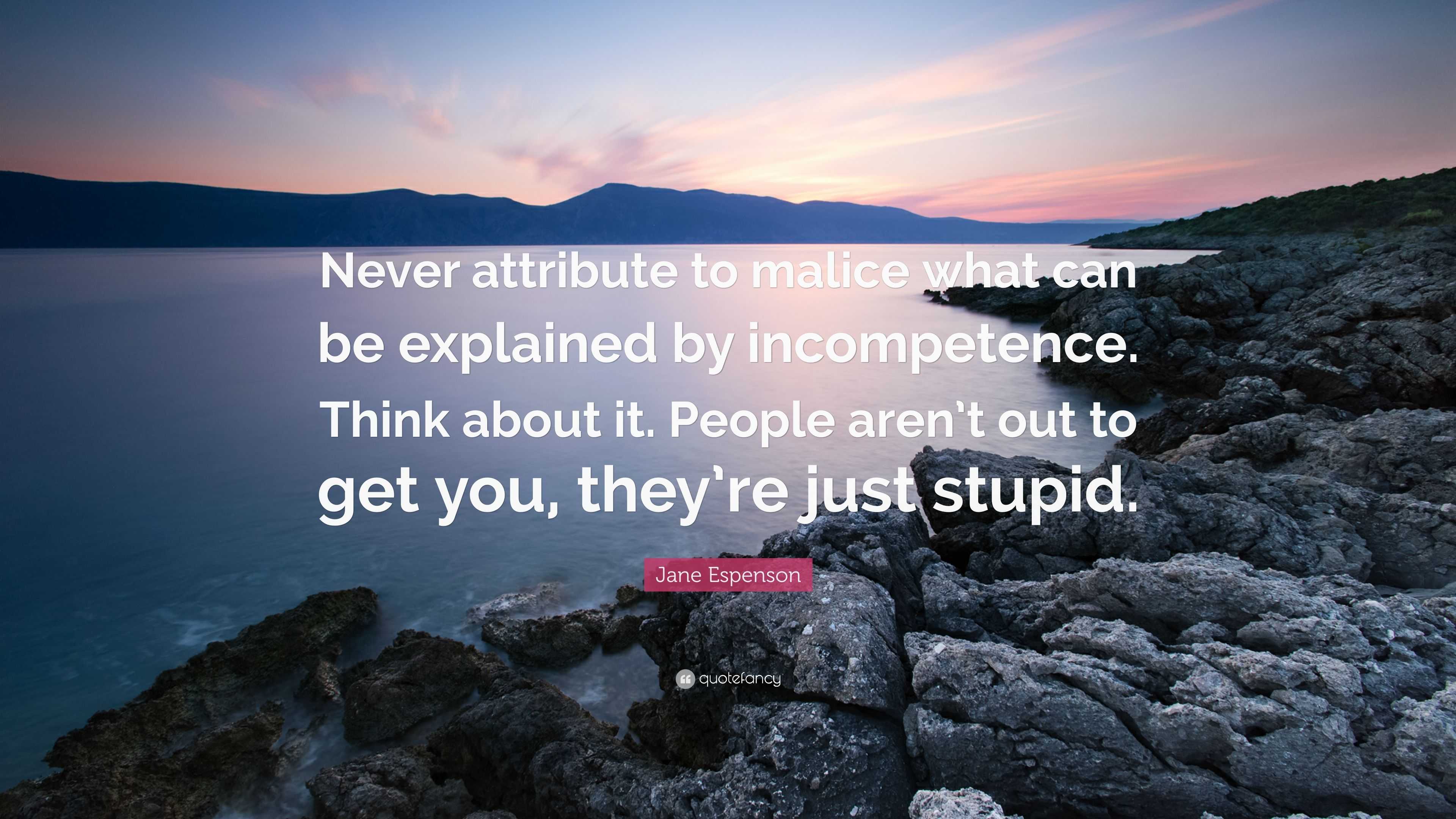
Jane Espenson Quote “Never attribute to malice what can be explained by Think
@stangdon Ah, but it's not quite that simple. The prepositional Complement normally comes after the Direct Object: I attributed that to him and if you try and reverse it it normally sounds ungrammatical: * I attributed to him that, for example is definitely wrong.So there's some special circumstances which make it OK in the Original Poster's example sentence.

"Never ascribe to malice that which can be adequately be explained by Napoleon
Never attribute to malice that which can be adequately explained by stupidity, but don't rule out malice. A quote from, Albert Einstein